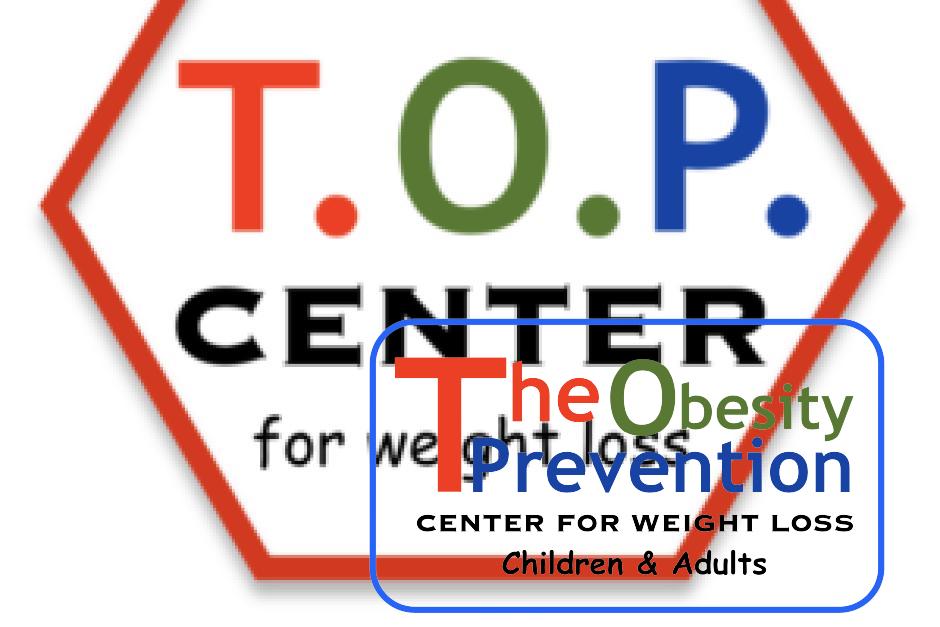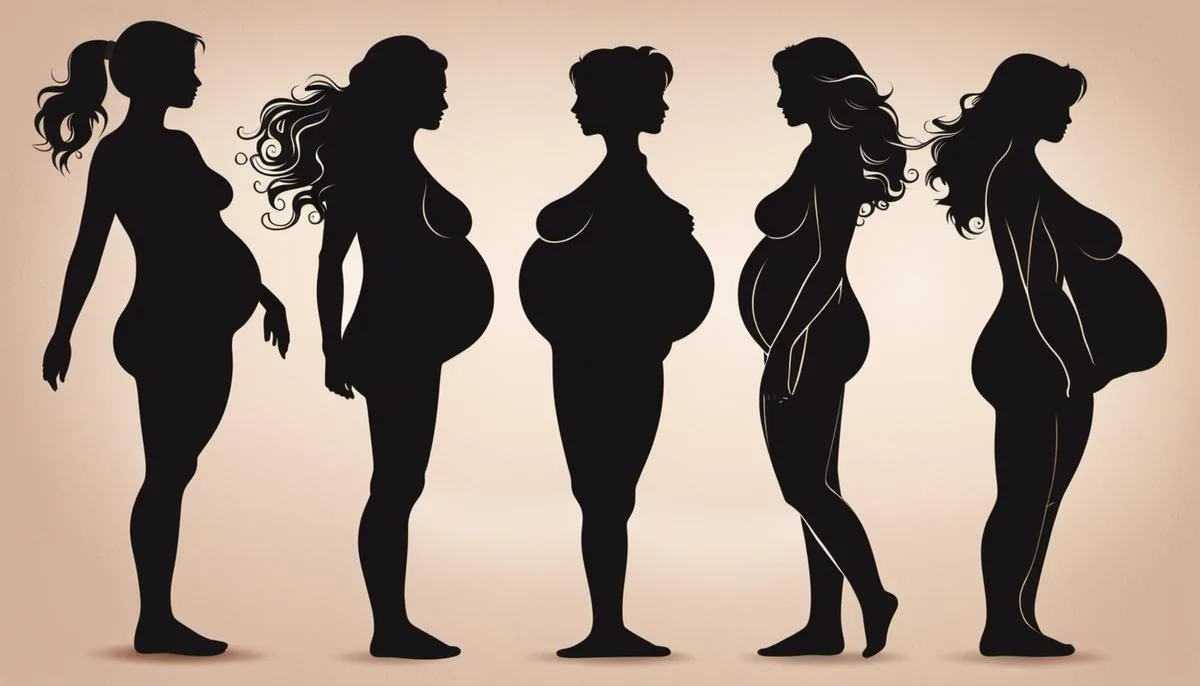This blog post talks about how to manage postpartum weight.
Welcome to the journey of understanding, managing and embracing your post-pregnancy body. The transition to motherhood comes with a myriad of changes – physical, hormonal, and emotional. Gaining weight is a natural and healthy part of this journey, as your body changes to accommodate and nurture a new life.
However, after giving birth, the ‘baby weight’ can often be a source of concern for new mothers. Whether you’re battling hormones, confronting changes in muscle tone and metabolism, considering meal plans and exercise routines, grappling with the balance of mental health, or seeking professional guidance, the postpartum weight loss journey can sometimes feel overwhelming.
This piece aims to guide you through this voyage, helping you to understand your body post-pregnancy, direct you towards healthy eating habits, encourage safe and effective physical exercises, emphasize the role of mental health for weight loss, and the importance of professional advice to make the journey as smooth as possible.
Understanding Your Body Post Pregnancy
Understanding Hormonal Changes Post Pregnancy
One of the main physiological changes that occurs after pregnancy relates to hormonal fluctuations. Immediately following childbirth, the body experiences a rapid decline in pregnancy-related hormones like progesterone and human chorionic gonadotropin, alongside a spike in hormones like prolactin for breastfeeding. These hormonal shifts can have a significant impact on your body clock, mood, and energy levels, which are all crucial aspects of weight management.
Moreover, breastfeeding mothers produce more prolactin, which not only stimulates milk production but also has an influence on metabolism and weight loss. Studies have shown that prolonged breastfeeding can aid in postpartum weight loss. High prolactin levels can lead to a slightly higher metabolic rate, burning more calories even at rest.
Postpartum Muscular and Metabolic Changes
During pregnancy, the body typically gains weight to support the developing fetus. Part of this weight gain includes an increase in muscle tissue, particularly in the uterus and pelvic region. After childbirth, these muscles will have stretched and most will need recovery and strengthening. A weakened core can affect your overall strength and fitness levels, making it more challenging to embark on exercise routines designed for weight loss.
On the other hand, the metabolic rate – the efficiency with which your body burns calories – increases during pregnancy but tends to slow down postpartum, especially if you’re not breastfeeding. This slowdown could potentially hinder postpartum weight loss efforts, as the ability to shed pounds is directly influenced by how effectively the body burns through energy stores.
Deciphering the Composition of ‘Baby Weight’
It’s essential to understand how ‘baby weight’ is distributed across a woman’s body during pregnancy. This weight gain isn’t merely attributed to an increase in fat. Here’s the general breakdown: the baby contributes an average of 7.5 lbs, the expanded uterus approximately 2 lbs, an increase in blood volume about 4 lbs, amniotic fluid around 2 lbs, a growth in breast tissue roughly 2 lbs, and additionally, several pounds are stored as extra fat for breast milk production.
Consequently, the weight gained during pregnancy is both anticipated and beneficial. However, shedding this weight responsibly post-delivery requires a well-crafted approach. This approach should revolve around maintaining a balanced diet, regular exercise, and fostering patience as each woman’s postpartum journey varies. Account for your metabolic rate variations and the recovery timeline your muscles will require. Remember, the ultimate goal should be sustainable and long-term success.

Healthy Eating for Postpartum Weight Loss
The Significance of a Balanced Diet in Postpartum Weight Loss
Adhering to a well-adjusted diet is instrumental for weight reduction following childbirth. Such a diet involves a diverse blend of foods from all the food groups, ensuring your body receives a comprehensive spectrum of essential nutrients. A wholesome diet post-childbirth ought to comprise lean proteins, whole grains, fruits, vegetables, and a generous quantity of water. Simultaneously, it’s advisable to minimize the consumption of processed foods and high-sugar beverages.
Furthermore, it’s worthwhile to factor in the particular nutritional needs that the recovery post-childbirth and breastfeeding demand. For example, breastfeeding mothers require an extra 500 calories per day and increased protein intake to facilitate milk production. Fundamental nutrients including folic acid, calcium, iron, vitamins D and B12, and iodine are pivotal during the postpartum phase.
Meal Planning for Postpartum Weight Loss
Meal planning can be an effective tool for managing portion sizes and maintaining a balanced diet post childbirth. Consuming meals at regular intervals, typically every 3 to 4 hours, can help to regulate blood sugar levels and curb excessive hunger.
It is beneficial to plan meals that include a good balance of macronutrients – carbohydrates for energy, protein for growth and repair, and healthy fats for brain and cellular health. For example, a breakfast could consist of eggs (protein), whole grain toast (carbohydrates), and avocado (healthy fats). Including a variety of colors in your veggie choices does not only make your plate look more appealing, but ensures a wider range of nutrients, too.
Portion Control, Hydration and Healthy Snacking
Portion control is a critical aspect of healthy eating for postpartum weight loss. Overeating can lead to excess caloric intake and stall weight loss efforts, even if the foods consumed are considered healthy. One method of controlling portion sizes is using smaller plates or bowls, as well as being mindful of serving sizes.
Keeping the body well hydrated is another fundamental aspect of weight loss. Drinking plenty of water aids in digestion and can help to control appetite. It is often recommended to drink a glass of water before meals to prevent overeating.
Healthy snacking can also aid in weight loss. Snacks rich in fiber and protein can provide sustained energy release, preventing blood sugar spikes and dips that may lead to cravings for unhealthy foods. Including snacks like Greek yogurt, nuts and seeds, fruits, and raw vegetables can be satiating and also add valuable nutrition to the diet.
Taking The First Step Towards Postpartum Weight Loss
Before diving into the process of postpartum weight loss, it’s vital to bear in mind that this shouldn’t be your sole focus during the postpartum period. Post-childbirth, it’s paramount that the mother’s diet caters to her overall wellbeing, aiding in the recovery from the duress of childbirth. Some specialists advise waiting at least six weeks, or after the postnatal study, before you actively venture into weight loss. Sudden alterations to your diet are typically not beneficial. It’s generally more productive and successful to gradually and consistently transform your dietary habits. This will eventually support your journey towards securing a healthy postpartum weight.

Photo by ellaolsson on Unsplash
Physical Activity and Exercise
Embracing Physical Activity During The Postpartum Weight Loss Journey
Maintaining the right balance of physical activity and exercise is pivotal in the postpartum weight loss journey. Reverting to the pre-pregnancy body weight takes patience and requires the ultimate fusion of a balanced diet and consistent physical activity. For some women, it might take up to a year to shed the extra weight, while for others, it could be a quicker process. Regardless of the time it takes, one thing is certain: healthcare professionals are unanimous in their agreement about physical activity being an indispensable part of postpartum weight loss.
Recommended Postpartum Exercises
There’re several types of exercises that are safe to perform immediately after childbirth, such as walking or gentle stretching. These can help to increase blood circulation, reduce swelling and improve overall mood. As a woman’s body recovers from childbirth, she can gradually reintroduce more strenuous exercises into her routine. It’s important to remember that all women are different, and it’s necessary to be patient and attentive to individual physical responses to exercise.
- Pelvic floor exercises
One of the safer workouts recommended by health professionals postpartum is pelvic floor exercises. These can help to strengthen the muscles that have been stretched and weakened during pregnancy and childbirth. Over time, gentle yoga and pilates can also be introduced, both of which involve core strengthening and stability training.
Gradually Progress Toward More Strenuous Workouts
As stamina and strength increase, postpartum women can consider gradually reintroducing moderate to high-intensity workouts, such as running, high-intensity interval training (HIIT), or weightlifting, to their routine. Before transitioning to these more strenuous activities, it’s crucial to consult with a healthcare provider to ensure the body is ready for strenuous physical activities without running the risk of injury or damage.
The Benefits of Exercise Apart From Weight Loss
While postpartum weight loss is a common goal for many new mothers, the benefits of exercise go beyond simply shedding pregnancy weight. Exercise can contribute to improved mental health by reducing the risk of postpartum depression and anxiety. Additionally, it can help increase energy levels—the physical demands of looking after a newborn can be taxing, but regular low-impact exercise such as walking or cycling, can enhance stamina and reducing fatigue.
Furthermore, exercise can help in the recovery and strengthening of abdominal muscles that have been stretched over pregnancy, resulting in improved posture and reduction in back pain. Finally, regular physical activity can improve overall cardiovascular health, which is important for maintaining the stamina required for caring for a newborn and other daily activities.
Adopting a Balanced Strategy for Postpartum Weight Loss
Adopting a balanced strategy for postpartum weight loss is essential in achieving sustainable health and fitness. This approach requires a combination of gradually increasing physical activity and consistently maintaining a wholesome diet. By integrating these practices into your daily routine, your transition into a fit, healthy post-baby body becomes a natural process.

Mental Health and Postpartum Weight Loss
The Role of Mental Health in Postpartum Weight Loss
Just as physical activity and nutrition are crucial, mental well-being is also a fundamental aspect of postpartum weight loss. As a new mother, you undergo significant physiological changes whilst juggling the responsibilities of caring for a new life, which can lead to anxiety, stress, and even postnatal depression. These conditions can negatively impact your weight loss journey by influencing your eating habits, level of physical activity, and overall metabolic rate. Therefore, proper mental health management is also a critical key to unlock a successful postpartum weight loss journey.
Influence of Stress on Weight Management
Postpartum stress can significantly influence weight management. Chronic stress can raise cortisol levels in the body. This hormone assists the body in responding to stress, but excessive cortisol can lead to increased hunger, carbohydrate cravings, and potential weight gain. Moreover, stress can make it challenging to maintain a regular exercise schedule or prepare healthy meals, both vital components of weight loss.
Role of Adequate Sleep for Weight Loss
Quality sleep is often an overlooked element of postpartum weight loss. Sleep deprivation, common among new moms, can hinder efforts to lose weight. Lack of sleep may increase cravings for unhealthy foods and slow down metabolism, both contributing to weight gain. Furthermore, sleep deprivation can escalate stress levels, creating a vicious cycle of stress and poor sleep, detrimental to both mental health and weight loss.
Developing a Body Positive Outlook
Postpartum weight loss is a journey defined by patience and self-acceptance, which are crucial for maintaining mental health. It’s essential to develop a body-positive outlook, appreciating the body for the miracle of childbirth it performed. Shifting from a weight-centric to a health-centric perspective can encourage healthier choices. Comparison with others, including pre-pregnancy self, or unrealistic beauty standards, should be avoided. Instead, focusing on feeling strong, energetic, and healthy can yield more fulfilling results.
Setting Realistic Expectations
Understanding that everyone’s body reacts differently to pregnancy and birth can help set realistic expectations for postpartum weight loss. Many factors influence postpartum weight loss speed, such as age, genetics, breastfeeding status, and overall health. It’s not practical to expect immediate results. The body undergoes many changes in nine months of pregnancy, and it needs time to adjust post-birth as well. Remembering that slow and steady progress is better than a crash diet or over-exercising can act as a motivator.
Seeking Professional Help
If feelings of anxiety or depression persist during the postpartum period, it’s necessary to seek professional help. Mental health professionals can provide appropriate treatment, including counseling, medication, or a combination. Support from mental health professionals can ease stress and promote healthy habits, thereby aiding postpartum weight loss.
A holistic approach to postpartum weight loss involves not only physical changes but also a focus on mental health. Ensuring adequate rest, managing stress, maintaining a positive body-image, setting achievable goals and using professional interventions when necessary, can simplify and enhance this transformative process.

Seeking Professional Guidance
The Role of Professional Input in Postpartum Weight Loss
The postpartum phase triggers a myriad of changes, with reverting back to pre-pregnancy weight being one of the significant milestones. Professional intervention becomes pivotal, considering the fact that every woman has her own unique set of physical requirements and capabilities. Experts such as obstetricians, gynecologists, weight loss consultants, and nutritionists can offer individually-tailored guidance, taking into consideration various elements such as the woman’s medical history and current physical status.
When to Seek Professional Advice
Each pregnancy and childbirth experience is different. The best time to consider professional guidance for weight loss after delivery varies for each woman. However, generally, obstetricians recommend a check-up six weeks after delivery, at which point the postpartum weight loss plan may be initiated. However, in some cases, if there are specific health concerns or complications during childbirth, it may be prudent to wait.
Breastfeeding mothers, in particular, should consult professionals before starting any weight loss regime. Certain weight loss tactics may impact milk supply, highlighting the need for careful guidance. It is also crucial for breastfeeding mothers to receive adequate nutrition, which a diet custom-crafted by a professional can ensure.
Choosing the Right Professional for Postpartum Weight Loss Guidance
The choice of healthcare professional for postpartum weight loss guidance is crucial. Obstetricians and gynecologists understand the childbirth-related physiological changes women experience and can provide excellent advice. Weight loss consultants or trainers can help design a physically suitable workout regime tailored to regain the pre-pregnancy shape gradually.
The role of a nutritionist is also pivotal. Special attention must be given to what you eat and when you eat. A nutritionist can prepare custom meal plans considering dietary restrictions, calorie requirements, and personal preferences.
Understanding The Importance of Different Bodily Responses
Given the unique childbirth experience and varied reactions of bodies post-delivery, personalized guidance is the most beneficial. Some women may find it difficult to lose weight, while others may struggle to keep weight on. On the other hand, some women respond tremendously to workout regimes, whereas others see more success with dietary alterations. Hence, understanding that each body reacts differently is crucial, and here is where personalized guidance from knowledgeable professionals is irreplaceable.
Finally, while seeking professional guidance is crucial, it is equally important to have patience with the process. Weight loss post-pregnancy is not instantaneous; it requires persistence, motivation, and hard work over a period of time. With the dedicated assistance of professionals, a balanced diet, and a determined mind, attaining your pre-pregnancy weight can be a healthy and rewarding experience.

Photo by anniespratt on Unsplash
Embarking on the journey of postpartum weight loss is like opening a new chapter in the book of motherhood. It might appear daunting in the beginning, but remember that it is not a sprint, but a marathon. Understanding your body post-pregnancy helps you appreciate the remarkable changes it underwent to bring life into the world.
Healthy eating and physical activity not only aid in shedding weight but also play a crucial role in enhancing overall health and well-being. Taking care of your mental health is equally vital because stress and sleep deprivation can adversely affect weight loss efforts. Lastly, do not hesitate to seek professional guidance when navigating through your postpartum weight loss journey. Each body is unique, and it is paramount to remember that it is not about ‘bouncing back’ to pre-pregnancy weight but about gradually moving towards a healthier you, at your own pace and in your own time.
FAQ 1: How do hormonal changes affect postpartum weight loss?
Answer: Hormonal fluctuations after pregnancy, such as changes in progesterone and prolactin levels, can impact mood, energy levels, and metabolism, influencing the postpartum weight loss journey.
FAQ 2: What makes up the ‘baby weight’ gained during pregnancy?
Answer: The ‘baby weight’ includes contributions from the baby, uterus, blood volume, amniotic fluid, breast tissue, and extra fat for breast milk production. Understanding this distribution is crucial for responsible postpartum weight loss.
FAQ 3: What is the significance of a balanced diet in postpartum weight loss?
Answer: A balanced diet post-childbirth should include lean proteins, whole grains, fruits, vegetables, and ample water. Meeting specific nutritional needs for recovery and breastfeeding is also important.
FAQ 4: How can meal planning aid in postpartum weight loss?
Answer: Meal planning helps manage portion sizes, regulate blood sugar levels, and ensure a diverse intake of nutrients, contributing to effective postpartum weight loss.
FAQ 5: What are some recommended postpartum exercises?
Answer: Safe postpartum exercises include walking, gentle stretching, pelvic floor exercises, yoga, and pilates. Gradual progression to more strenuous workouts should be done under professional guidance.
FAQ 6: How does mental health affect postpartum weight loss?
Answer: Mental well-being is crucial for postpartum weight loss, as stress, anxiety, and sleep deprivation can influence eating habits, physical activity, and metabolism. It’s essential to manage mental health effectively.
FAQ 7: What role does stress play in postpartum weight management?
Answer: Chronic stress can raise cortisol levels, leading to increased hunger and potential weight gain. Stress can also disrupt sleep patterns, further affecting weight loss efforts.
FAQ 8: How can adequate sleep support postpartum weight loss?
Answer: Quality sleep is often overlooked in postpartum weight loss. Sleep deprivation can lead to cravings for unhealthy foods, slowed metabolism, and increased stress, hindering weight loss.
FAQ 9: How can one develop a body-positive outlook during postpartum weight loss?
Answer: Developing a body-positive outlook involves appreciating the body for its role in childbirth, avoiding comparisons, and setting realistic expectations for gradual progress rather than immediate results.
FAQ 10: When should I seek professional guidance for postpartum weight loss?
Answer: It’s advisable to consult healthcare professionals like obstetricians, gynecologists, weight loss consultants, trainers, or nutritionists for personalized guidance. Seek their help when you’re ready and considerate of your unique needs and circumstances in your postpartum weight loss journey.
Thank you for reading this post, don't forget to subscribe to our free newsletter
!
